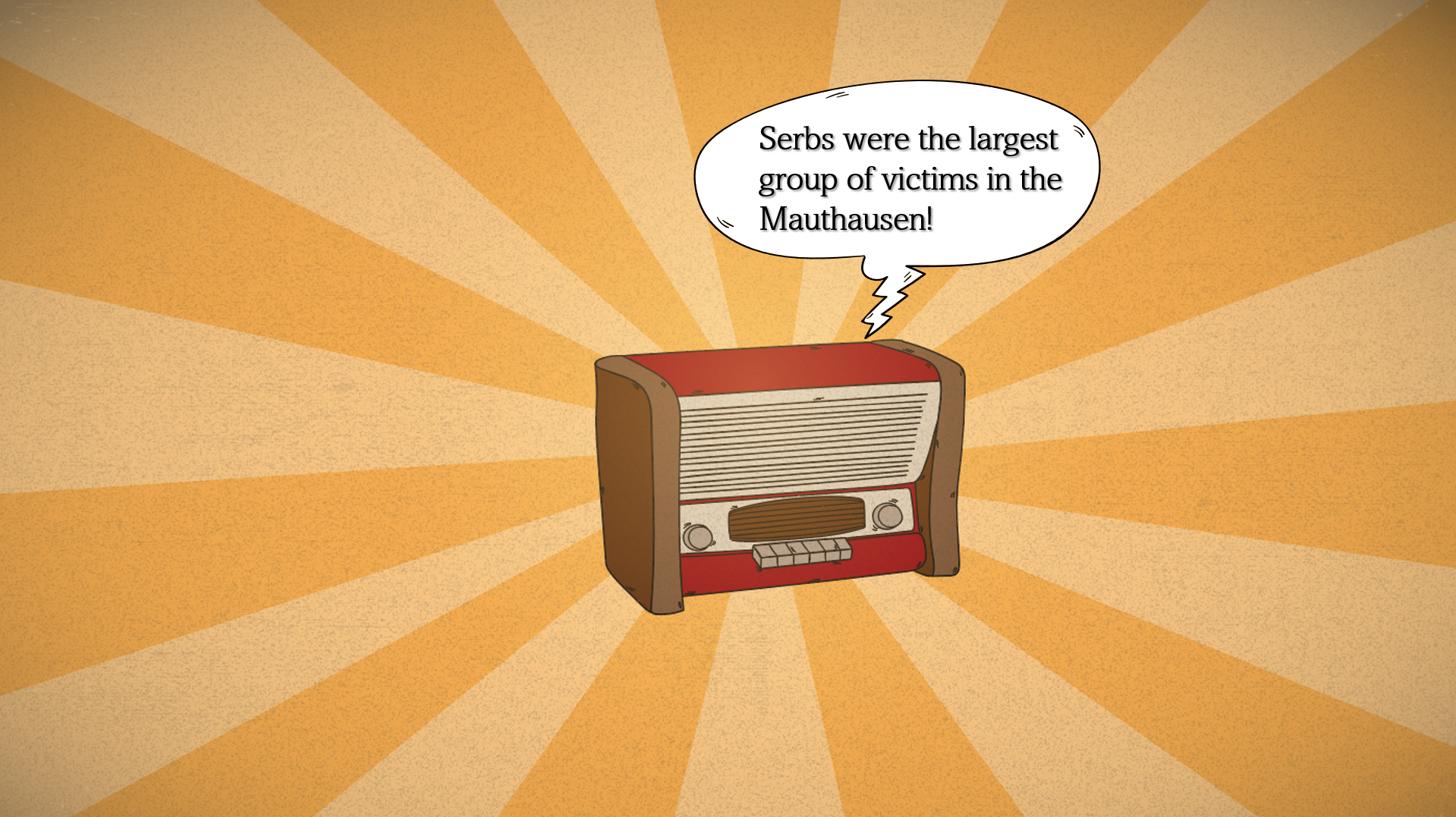Original article (in Serbian) was published on 20/5/2025; Author: Teodora Koledin
On May 11, the first program of Radio Belgrade broadcast a report on the 80th anniversary of the liberation of the Nazi concentration camp Mauthausen, during which it presented a falsehood regarding the national composition of the camp’s victims. “Eighty years have passed since the liberation of the Mauthausen camp in Austria. The exact number of victims is unknown, but estimates suggest that by the final days of the Nazi regime, more than 120,000 people had lost their lives. Among them, the majority were Serbs”, this was featured in the afternoon news on the first radio program of the public broadcaster. However, multiple reliable sources confirm that Serbs were not the majority among the victims of Mauthausen.
Croatian historians Martina Grahek Ravancic and Marica Karakas Obradov published a scientific research paper in 2013 about the victims from Yugoslav territory who perished in Mauthausen. The paper states that shortly after the end of World War II, a memorial plaque was installed at the former site of the camp. According to the authors, the plaque listed the nationalities or citizenships of a total of 122,767 victims, of which 12,890 were recorded as being of Yugoslav origin. The authors also note that newer research has brought somewhat different data:
“A total of 197,464 prisoners passed through Mauthausen, of whom 8,650 were from the territory of Yugoslavia. Therefore, the figure of 12,890 Yugoslav victims, which was cited right after the war, was significantly inflated – as, indeed, were the numbers of victims from other European countries and the Soviet Union”.
Back in 1992, a publication titled “Yugoslavs in the Mauthausen Concentration Camp” by Miodrag Milic was also released in this region. On page 42 of this book, the aforementioned original statistics of victims in the camp are presented.
In both cases, the number of victims of Yugoslav, and thus also Serbian, nationality was not the highest. Significantly more citizens from the former Soviet Union, Poland, and Hungary perished. Moreover, it is important to emphasize that the given number does not refer exclusively to Serbs, but also to other nations that were part of Yugoslavia at the time – Croats, Slovenes, Montenegrins, Macedonians, Bosniaks, as well as other ethnic minority groups.
“It has already been noted that the majority of Yugoslav internees in the Mauthausen concentration camp were Slovenes and Serbs from all parts of the country, including the territory of the so-called Independent State of Croatia”, explains Milic, adding that “to them should be added several hundred Bosnians, Dalmatians, Albanians, and Croatian citizens”. The author further explains that “Slovenes were sent to Mauthausen from collection camps and centers on their territory, while Serbs and most of the others came from the Banjica and Sajmiste camps. All were registered in Mauthausen as Yugoslavs, except for a few dozen Croats who had ‘Kroate’ (Croat) noted next to their names”.
Milic also points to estimates by other authors, such as the German politician Bruno Baum, who in his work “The Last Days of Mauthausen” presented statistics listing a total of 122,767 killed prisoners, of whom 8,203 were Yugoslavs.
And some more recent data comes from a publication released in 2013 – an educational and exhibition guide issued by the Mauthausen Memorial Center in Austria. Namely, during the renovation of this institution, the so-called Room of Names was conceptualized and created – a space displaying the names of all those who lost their lives in the camp. Around 81,000 victims were identified.
“This room was envisioned as a supplement to existing forms of remembrance, both national, in the form of monuments and memorial plaques, and private forms of commemoration, such as plaques that families place in honor of their loved ones”, the brochure explains, followed by a categorization of the victims based on their national affiliation.
In this case, the number of victims from the former Yugoslavia is even smaller, though still not final.
However, this is not a competition, nor does a smaller number of victims imply that they are any less important than others. Still, manipulation of historical facts is harmful, as Misko Stanisic, a member of the Republic of Serbia’s delegation to the International Holocaust Remembrance Alliance, explained to Novi Magazin:
“Manipulating history is, in effect, also manipulating people, which makes it more malicious. Many individuals, under the illusion that they are spreading the truth about the suffering, sincerely believing they are showing patriotism and empathy for the victims, are in fact doing the opposite – spreading lies, exploiting and demeaning the victims”.



